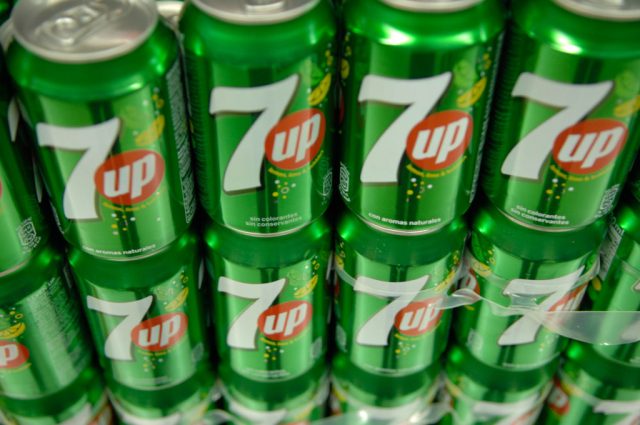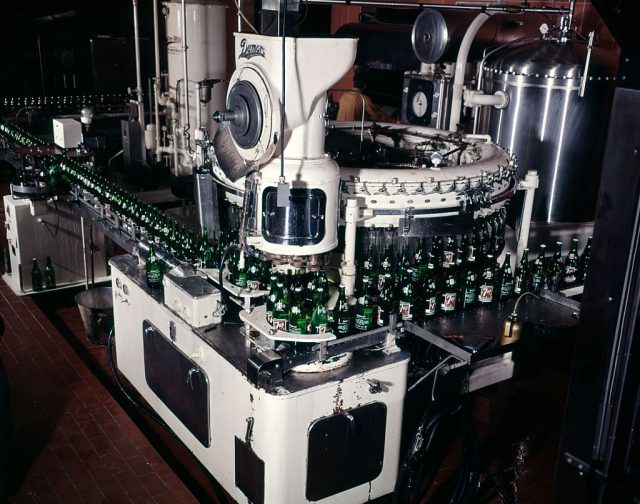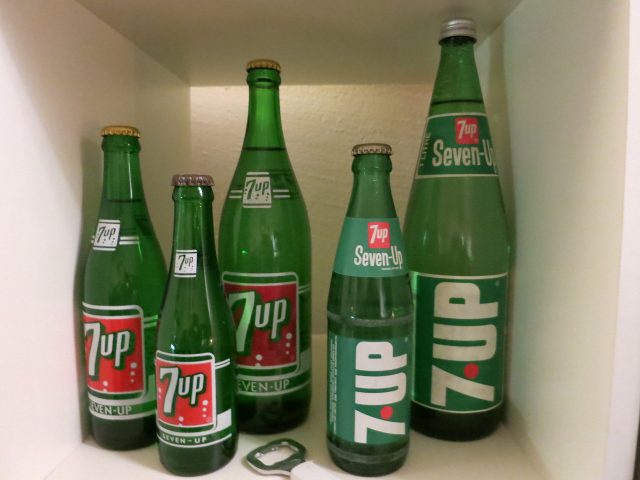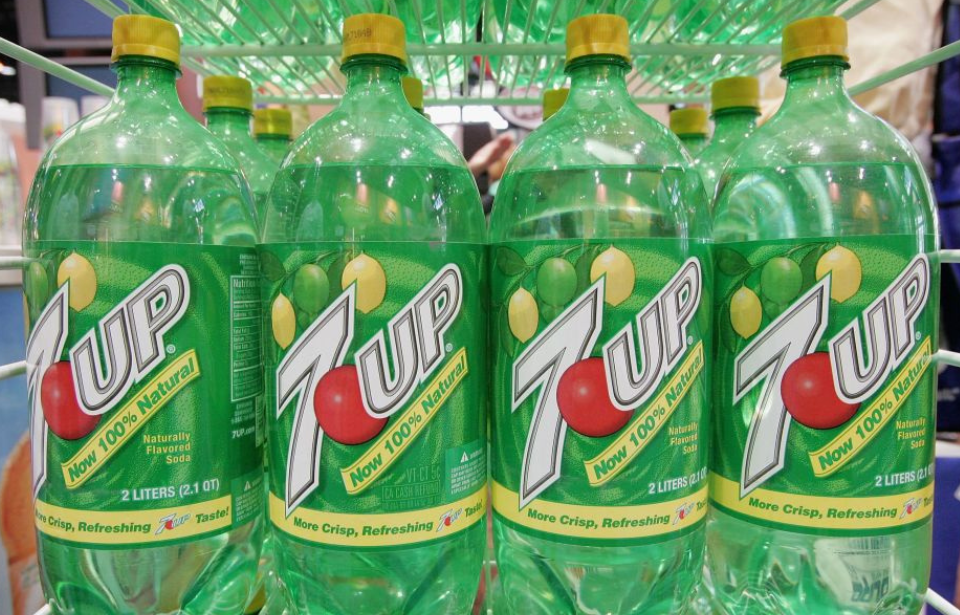7UP is among the most popular soft drink brands in the world. The lemon-lime soda has gained a cult following, but what many of its fans might not know is that it used to contain an ingredient used to treat depression.

7UP was invented in 1929 by Charles Leiper Grigg of The Howdy Corporation. It came to market that same year under the name Bib-Label Lithiated Lemon-Lime Soda, just two weeks before the Wall Street Crash of 1929, which spurred the Great Depression. The soft drink was named as such due to one of its seven ingredients: lithium citrate.
Lithium is a mood-stabilizing drug once used to treat depression and bipolar disorder. Its inclusion in 7UP’s formula came during a time when the chemical was added to virtually every product touted as medicinal in nature. Lithium springs and rejuvenation baths had been popular for decades, and lithium citrate, in particular, was widely viewed as beneficial to one’s health.
However, doctors at the time were unaware of lithium’s effects when ingested in large doses. In fact, its ill effects wouldn’t be learned until the middle of the century, and 7UP – by then known as 7 Up Lithiated Lemon Soda – removed it from its formula in 1948.
The soft drink’s formula has been changed many times over the years, and it wasn’t until 1936 that it became known as just 7UP.

The inclusion of lithium in the original formula has led to speculation that that’s why there’s a “7” in the name, as the element has an atomic mass of approximately seven. Others believe differently. They theorize the “7” comes from the original number of ingredients in the formula or because it was sold in 7-ounce bottles, instead of the 6-ounce ones other companies used.
There was once a theory that the “7” related to the soda’s pH. However, it has since been determined that 7UP has a pH of around 3.79, similar to that of other soft drinks.

While it might seem outlandish that 7UP once included a medicinal property, it wasn’t the only drink to include drugs or be marketed as a health-boosting drink. Coca-Cola‘s original formula is famous for including cocoa leaves, thus resulting in it containing small amounts of cocaine. It was also touted as being a cure-all capable of curing headaches, impotence, and morphine addiction, among other inflictions.
More from us: The Inventor of Coca-Cola was a Drug Addict who Died Penniless
As well, Dr. Pepper, while not containing illicit substances, was marketed as a restorative drink upon its release in 1885… Which is not surprising, given its medicinal taste. According to early advertisements, it was said to aid in digestion and restore vitality, vigor, and vim.
